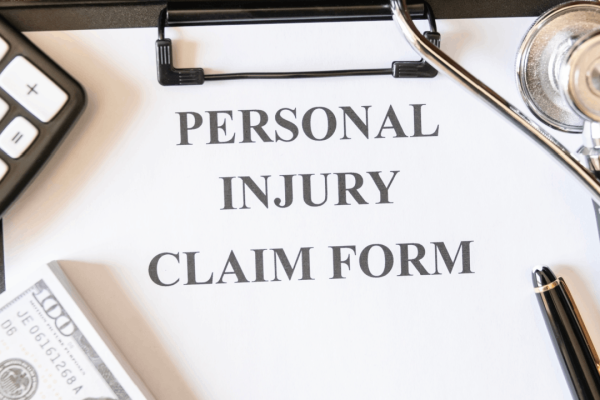
What Happens If Someone Sues You for More Than Your Insurance Covers
What Happens If Someone Sues You for More Than Your Insurance Covers
What happens if someone sues you for more than your insurance covers is a critical question that could affect your financial future. When a lawsuit exceeds your insurance policy limits, you may be personally responsible for the remaining amount. This situation may create financial exposure that could affect your assets, income, and long-term financial stability
Insurance companies only pay up to your policy limits. If a judgment exceeds your insurance coverage, you may be personally responsible for the remaining balance. This gap between coverage and judgment amount can lead to serious financial consequences.
Financial Impact: Understanding Personal Liability Beyond Insurance
When facing a lawsuit that exceeds your insurance coverage, several financial consequences emerge. The court can pursue your personal assets to satisfy the judgment, including your home, vehicles, bank accounts, and investment portfolios. Your wages may face garnishment, and liens could be placed on your property.
The plaintiff’s attorney will likely conduct asset discovery to identify all your valuable possessions. This process involves examining your financial records, property ownership, and income sources. Once identified, these assets become targets for collection efforts.
Your credit score may be negatively impacted if the judgment remains unpaid. This damage affects your ability to secure loans, mortgages, or even employment opportunities. The financial stress extends far beyond the immediate judgment amount.
Legal Options: Protecting Yourself When Sued Beyond Coverage Limits
Several legal strategies can help when someone sues you for amounts exceeding your insurance coverage. Filing for bankruptcy protection may discharge certain judgments, though it may have long-term financial consequences. The U.S. Trustee Program provides official information about bankruptcy procedures. Chapter 7 bankruptcy can eliminate unsecured debts, while Chapter 13 allows structured repayment plans.
Negotiating a settlement can often be a more beneficial option than going to trial. Insurance companies frequently participate in settlement discussions even when claims exceed policy limits. Settling for an amount within your financial means prevents lengthy court battles and additional legal fees.
Asset Protection Strategies
Implementing asset protection measures before legal trouble begins provides the strongest defense. Establishing domestic asset protection trusts, forming limited liability companies, and maximizing retirement account contributions can shield assets from future creditors.
Payment Plan Negotiations
Courts sometimes approve payment plans for large judgments. These arrangements allow you to satisfy the debt over time rather than facing immediate asset seizure. Monthly payment plans make large judgments more manageable while preserving your essential assets.
Prevention Methods: Avoiding Insufficient Insurance Coverage
Preventing situations where lawsuits exceed your insurance coverage requires proactive planning. Regularly reviewing and updating your liability limits ensures adequate protection as your assets grow. Many financial advisors recommend liability coverage equal to your net worth plus one to two years of income.
Umbrella insurance policies provide additional liability protection beyond standard homeowners and auto coverage. These policies typically offer $1-5 million in extra coverage at relatively low costs. The National Association of Insurance Commissioners (NAIC) provides consumer guides for understanding insurance options. For high-net-worth individuals, umbrella policies represent essential protection against catastrophic lawsuits.
Consider your profession and lifestyle when determining coverage needs. High-risk activities, professional responsibilities, and valuable assets increase your lawsuit exposure. Adjusting coverage accordingly provides better protection against financial devastation.
Smart Protection: Secure Your Financial Future Today
Understanding what happens if someone sues you for more than your insurance covers empowers you to take protective action. The consequences extend beyond immediate financial loss, affecting your credit, assets, and future opportunities. Proper planning and adequate insurance coverage provide essential protection against these risks.
Protect Your Assets Before Lawsuits Strike
Consider addressing insurance gaps before a lawsuit arises. You may wish to speak with a licensed attorney to evaluate your coverage limits and asset protection strategies. Every day without adequate protection leaves you vulnerable to financial devastation that proper planning could prevent.
Frequently Asked Questions
1. Can they take my house if I'm sued for more than my insurance covers?
Yes, your primary residence may be seized to satisfy judgments exceeding insurance coverage, though homestead exemptions may provide partial protection depending on your state’s laws.
2. Will bankruptcy eliminate a judgment that exceeds my insurance?
Bankruptcy may discharge many judgments, but certain debts, such as those arising from fraud or intentional misconduct, may survive bankruptcy proceedings.
3. How long do I have to pay a judgment exceeding my coverage?
Judgment creditors can typically collect for 10-20 years, depending on state laws, and many judgments can be renewed, potentially extending the collection period indefinitely.
4. Can insurance companies be forced to pay beyond policy limits?
Insurance companies rarely pay beyond policy limits unless they acted in bad faith by refusing reasonable settlement offers within coverage limits.
5. What assets are protected from lawsuit judgments?
Protected assets vary by state but commonly include retirement accounts, primary residence equity (up to limits), and essential personal property like basic vehicles and household items. The Federal Trade Commission (FTC) provides consumer resources about debt collection and asset protection rights.
Key Takeaways
- Personal liability for amounts exceeding insurance coverage can lead to significant financial consequences, including asset seizure and wage garnishment.
- Umbrella insurance policies may provide additional liability protection beyond standard coverage limits.
- Asset protection strategies implemented before legal troubles arise can provide stronger defense against creditors.
- Negotiating settlements within your means may often be more beneficial than fighting judgments in court.
Regular insurance reviews and coverage updates can help ensure protection grows with your increasing assets and income.
Free Accident Claim Review
Complete the form to have an attorney review your accident claimCOMPLETE THE FORM TO BE CONNECTED WITH AN ACCIDENT ATTORNEY
No Matching Partners at the Moment
Thank you for your inquiry but there are no matches for you at this time. Please come back later and try again.
Recent Posts
- What Are Signs of a Good Settlement Offer From Insurance Companies?
- What Do Lawyers Charge for Personal Injury Claims? Fee Structure Guide
- How Much Do Most Personal Injury Cases Settle For in 2025?
- What Should I Expect From My Personal Injury Lawyer During Your Case?
- What Is the Role of a Personal Injury Lawyer in Your Accident Claim?
Archives
- January 2026
- December 2025
- November 2025
- October 2025
- September 2025
- August 2025
- July 2025
- June 2025
- May 2025
- March 2025
- February 2025
- January 2025
- October 2024
- September 2024
- August 2024
- July 2024
- June 2024
- May 2024
- April 2024
- March 2024
- February 2024
- January 2024
- December 2023
- November 2023
- October 2023
- September 2023
- August 2023
- July 2023
- June 2023
- May 2023
- March 2023
- February 2023
- January 2023
- November 2022
- October 2022
- September 2022
- August 2022
- May 2022
- April 2022
- March 2022
- February 2022
- January 2022
- December 2021
- November 2021





